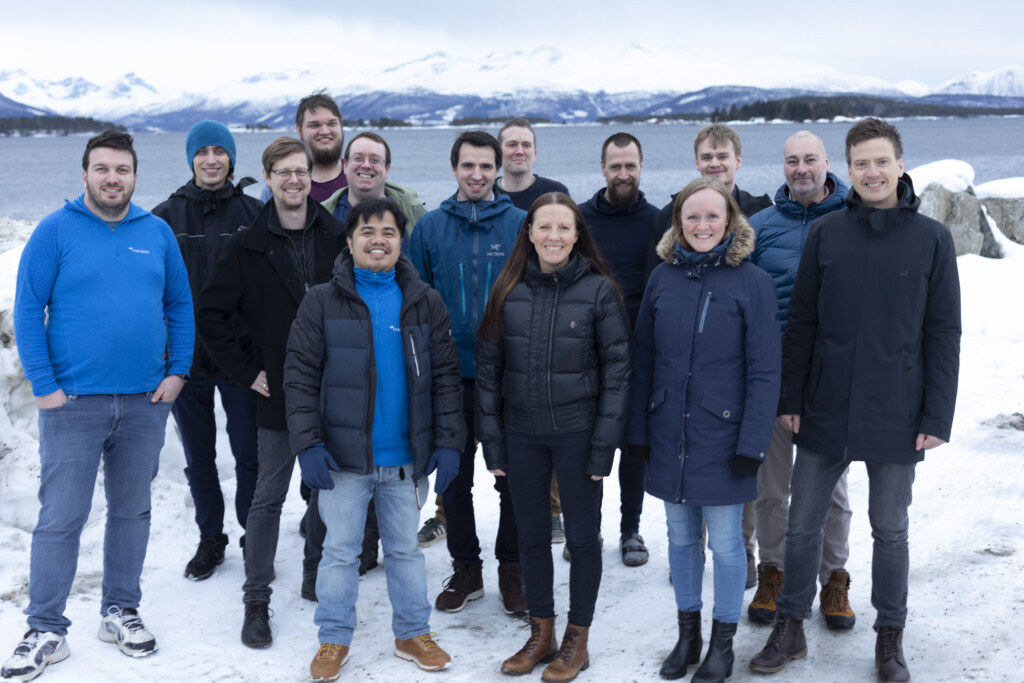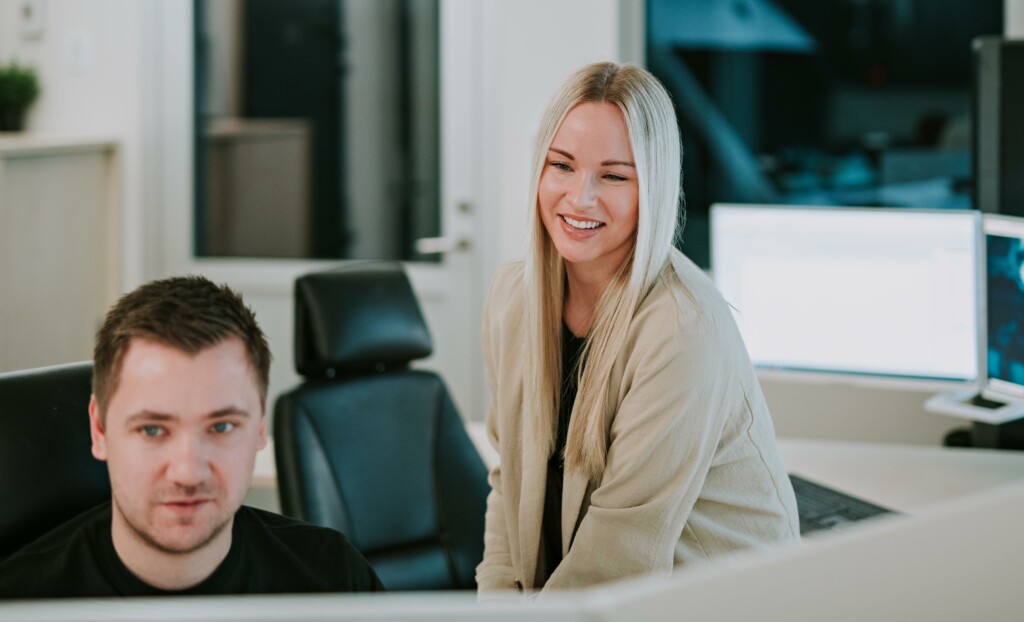Punk, philosophy, and programming
Growing up, Odd Arne Kristengård planned to become a rock star.
Luckily for us he couldn’t sing and ended up in Maritech instead.
In 2020, he took on the role as Maritech CEO. More than fifty new hires later, a pandemic, and a Nottingham Forest promotion, Odd Arne still hasn’t had a dull day – neither at work nor at home.
He had already been with Maritech for ten years. First as a Developer, then Technical Manager and COO (Chief Operating Officer). With a penchant for punk rock and practical jokes, he’s a far cry from the archetype of a top executive. Recently, he promised to rappel down from the roof of the eight-story office building where the Molde office is located – as a reward for the efforts of employees after the summer holidays. And yes, he has a fear of heights.
Fired from his band
Odd Arne is described as a rock-steady, highly skilled, and empathic guy with a lot of humor. His outlook on team management is grounded by his roles as a football coach and father of four – handy skills when leading an innovative Maritech team of free thinkers. Curiosity, flexibility, and willingness to try new things are qualities he cherishes.
“It’s a good thing I have that attitude,” he laughs. “I planned to become a rock star. I’m even quoted as saying that in the local newspaper. But then I got fired from the band because I couldn’t sing. I have also studied history, philosophy, psychology, and social anthropology – all to end up as a system developer.
In any case, daring to test new things we have not tried before is such an important reason why we have achieved what we have done in Maritech. It’s all about culture; innovative thinking is in our company’s DNA. I think that’s a crucial reason why we’re always hungry to evolve further, to take our moon shot. We are deeply passionate about helping our customers work even smarter and in new ways – to become more sustainable, to gain better control over operations, quality, and profitability.”
Felt like the end of the world
“Something else I also value highly is that we are good at helping each other. When I was new at Maritech, I made an error that could have had very serious consequences. For me, it felt like the end of the world. Then I got to experience what is so great about the culture here – colleagues who say “No problem, we will solve this together”. And then sit up with you all night for a whole weekend on the fly, until everything is ok again.
–It’s probably difficult to pick one thing, but can you name a particular episode or milestone that has meant a lot to you since you took over as CEO?
“It must be that we have reached our goal of being a solid and natural partner for the largest companies. I remember well a few years back, when Bjørnar and I, who is now head of Product & Technology, started working closely with several of our biggest customers. What we encountered was the question “Are you big enough to handle the commitments we need?” We decided – we were certainly going to be!
Since then, we, and the entire team here, have worked hard to meet our customers’ needs while building our team and cloud platform. I’m proud that we made it. Now we are geared up to work with anyone and have proven that Maritech Cloud is the best choice for seafood companies in Europe and North America. And soon also for the logistics industry when we launch our new TMS in 2023.
Seafood + logistics in Maritech Cloud
– Speaking of the year ahead, what is the main focus for Maritech entering 2023?
“It’s twofold. Both are about cloud technology and being the partner that can provide the best value for our customers. Firstly, we are working hard to maintain and strengthen our position in the seafood industry, where we are the only company that delivers a complete set of business systems tailored to support the seafood value chain from sea to table. And now we are well on track to lift everything to the cloud.
Since 2018, we have invested more than 140,000 development hours to build Maritech Cloud, our Microsoft Azure-based platform that is now in use by both small and large companies in several countries. We are now focusing primarily on North America, Iceland and Norway; the ambition is to be able to digitalize the entire global seafood sector within a few years.
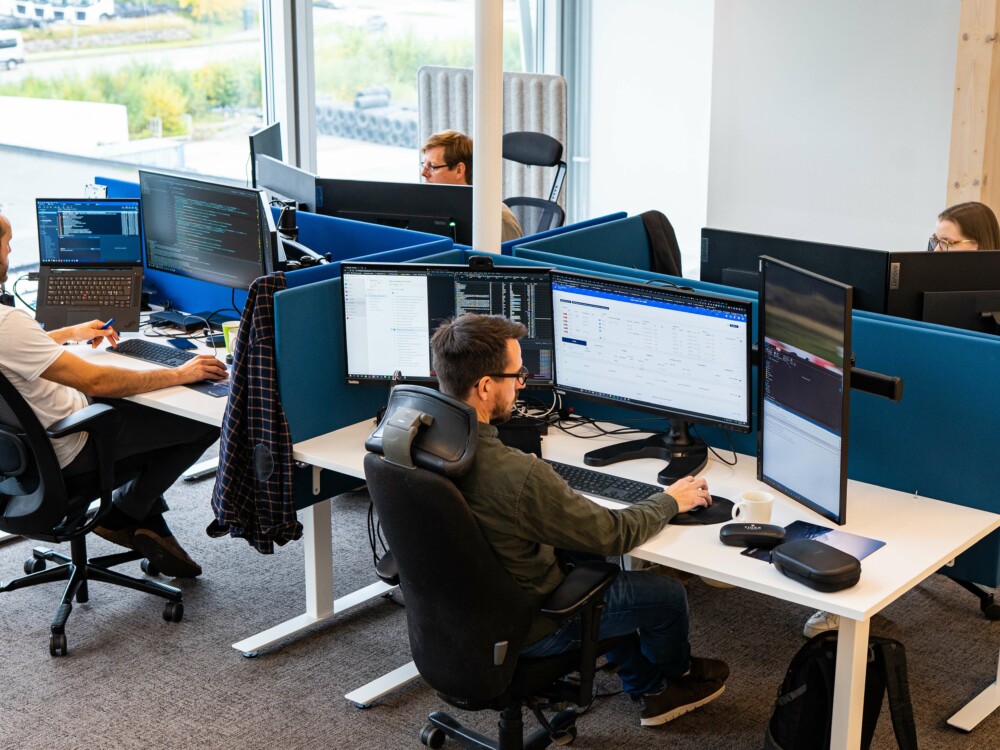
Secondly, we are now doing a major boost in logistics, building a completely new TMS – a transport management system – in the same cloud platform. It is a particularly important project because it is the core system for all our logistics customers selling transport. In addition, it will be seamlessly integrated with our seafood solutions so that logistics can easily also be managed by the transport buyers who belong to this industry.”
– Are there other topics or projects you’d like to highlight?
“Many! So many opportunities arise, expected and unexpected. No matter what the situation, we have such a competent and willing group of employees who are really passionate about Maritech. In total, we are around 125 people now. We are really proud that we have managed to attract so many talented minds in recent years, and that we are still doing all the development in Norway.”
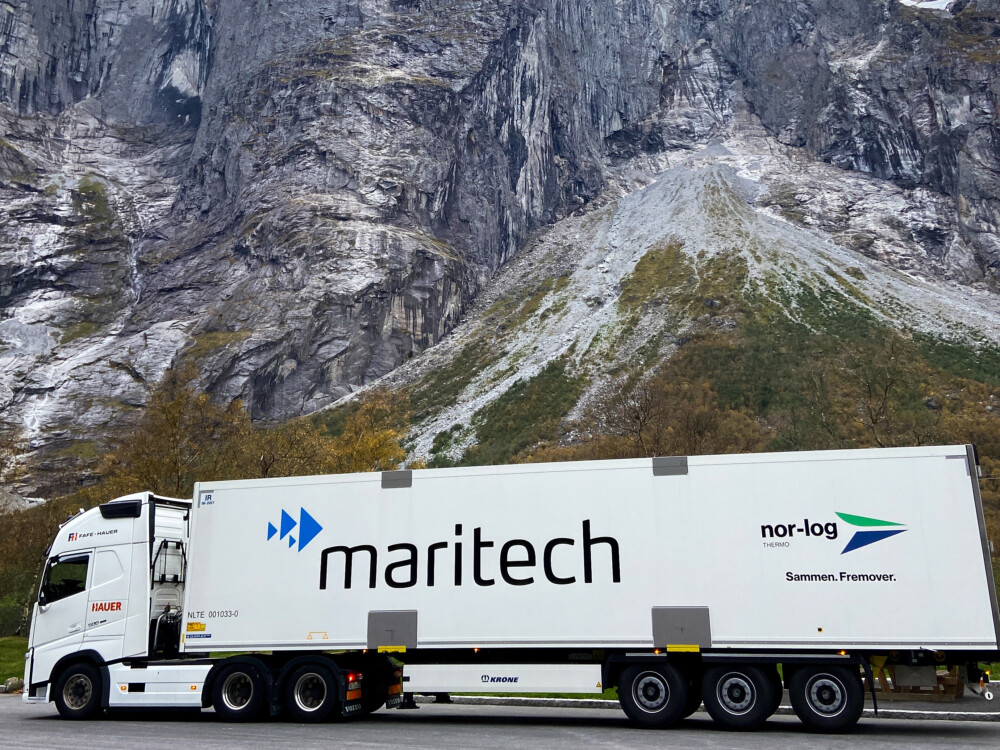
“Now we are building our own data platform, and recently we have also really focused on traceability – and how this adds value to our customers. Together with the Directorate of Fisheries and a number of other organisations from Norway and abroad, we are the application party in an EU project (TRACE 4 EU) that will address tracking throughout the value chain using blockchain technology.
Reliable and safe end-to-end traceability is important for both control for actors as well as quality- and environmentally conscious purchasing links and consumers. It remains to be seen how the industry will achieve even better prices for it. In any case, we will do what we can to make quality more profitable than ever. “
Customer success
– What’s the best thing about your job?
“It has to be when customers tell us that we have helped them succeed with something. When we learn that a seafood customer in North America has an easier everyday life because of our packing files from all the Norwegian companies they import from, or when someone in the transport industry has improved capacity utilization and route selection after they received new analytics tools from us. That’s the ultimate goal for us every day; giving our customers new competitive advantages.”
– You mentioned quality – it’s a topic that engages you. Can you say a little more about that?
“So much has changed since we started more than 40 years ago. At the same time, the need to improve efficiency, traceability and resource utilisation is something that still concerns all our customers to the highest degree – whether you run a transport company, a small fish processing plant, or an international group.”
“A positive trend is that documentation of quality and sustainability is now in the spotlight, and that it is becoming possible in the industry to charge more for this. There we see Norway has lagged behind, for example, Iceland, for a while, and there is still a lot to gain for many. At the same time, what is crucial for bringing about change is that it is the industry itself that must drive it forward. Those who are now good at digitalizing secure, objective documentation have an edge over others, as well as better data on why and how the raw material loses in quality, which suppliers it is most important to invest in further, and which improvement measures have the greatest effect.
Another example is how there is now great interest in sustainability reporting related to transport. Here it is interesting to see how this has quickly become something “everyone” should have, both in the seafood and logistics segments. The fact that we have customers who are both carriers, freight forwarders and transport buyers means that we see how this is now becoming part of the contract and price picture that all players in the value chain must relate to. “
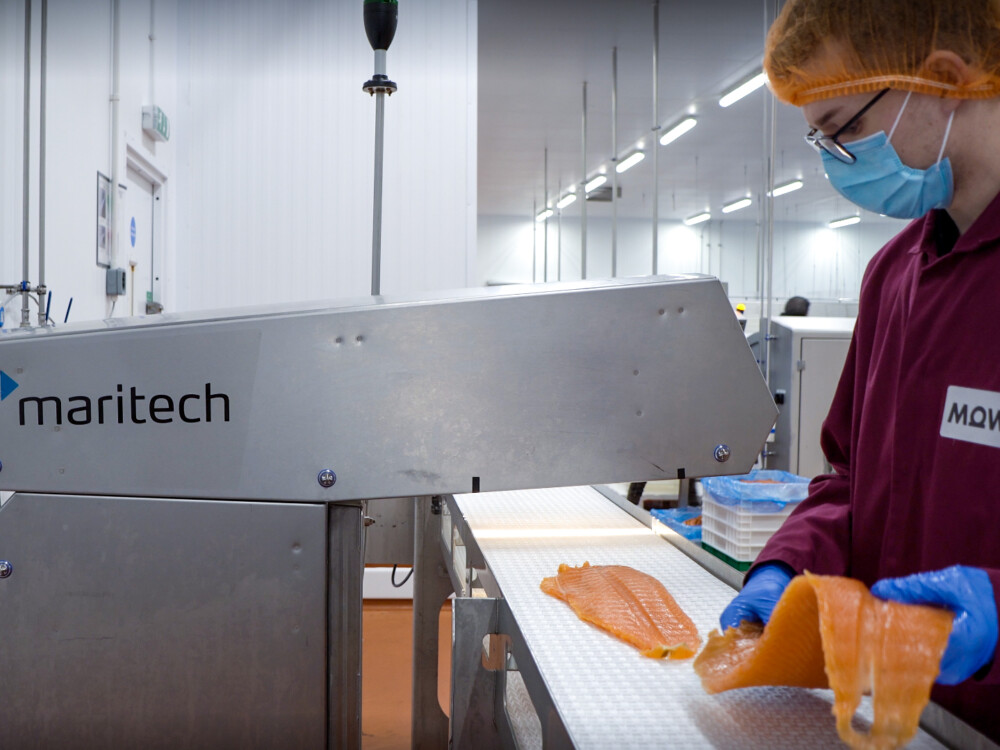
Change management
– These are challenging times. For many it is hardly digitalization that is at the top of the agenda these days?
“Clearly. It is dramatic how the situation in the world has now become. Everywhere, investments are put on hold, and there are major ripple effects that impact everyone. At the same time, it is digitalization that makes it possible to operate with higher profitability and be even better equipped to stand fast in precisely such times as we have now. Removing manual processes, automatic reporting, interacting more easily with suppliers, partners, certification bodies and customs – just think about how many such examples there are. Increase security and spend time on what you’re supposed to be doing, rather than administration.
The vast majority have more to do in order to fully exploit their potential. What is demanding for many is that digitalization brings with it changes in the way people work, and therefore it is just as much about change management, people and processes, as the technological tools themselves. On the other hand, modern cloud solutions have made it much easier, even for small players, to take advantage of the technological opportunities that exist.
The value chain x-factor
– You talk about seafood, transport management and data platforms, and Maritech is also working on IoT (Internet of Things) and warehouse management systems. Are you getting too broad?
“This is precisely the value chain focus that makes us unique, both in terms of expertise and software. Within the seafood sector, there are no competitors in the world that offer the degree of tracking and holistic management and control that we do. In logistics, too, the ambition is to do something similar internationally.
For customers, it means that players in different parts of the value chain can interact much more efficiently and profitably than if they use systems from several different suppliers, which are not as tightly integrated. And the more people who use the cloud platform across the board, the more value it will create for users.
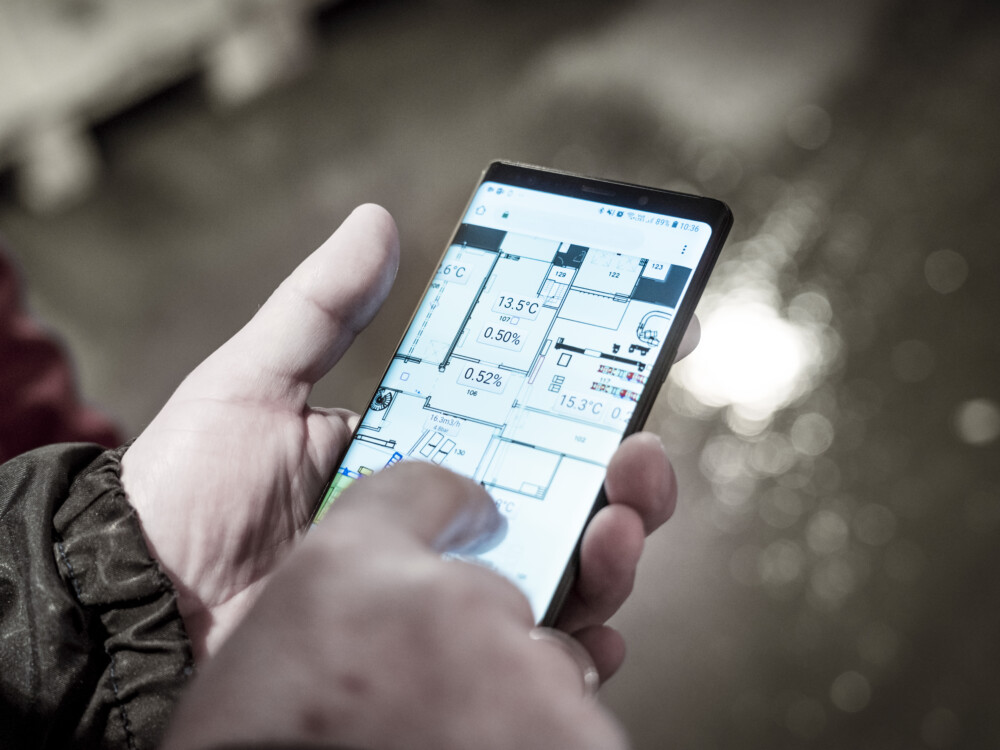
We have also digitalized industry-specific processes for which systems have not previously existed, such as seafood logistics. Here it was the expertise across sectors that was crucial to the innovation project, where we collaborated with transporters, transport buyers and the logistics team in the former Timpex, which we simultaneously acquired.”
– At the very end, there’s one thing we’re wondering about. What was that error you mentioned at the start?
“Ugh, I don’t think we should bring that up. But one thing is certain – we will continue to help each other and take care of our people when something happens,” he smiles. That’s probably what I’m most proud of at Maritech. “
Hi there!
We would love to hear from you!

